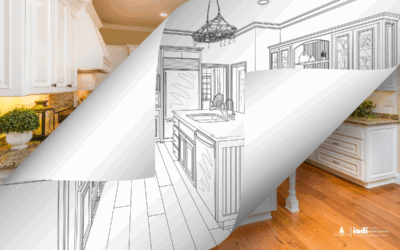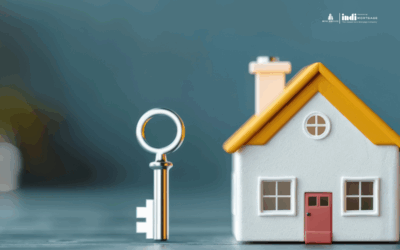Welcome To Our Mortgage Educational Blog About:
How to Move Out of Your Parent’s House in Canada: 16 Easy Steps with Mortgage Loan Tips

Buckle up! This is a big one. This blog will go over what you need to know in order to move our of your parents house, cover living expenses, how your credit history is important, mortgage approval tips, and more. So, lets begin!
Moving out of your parent’s house is a big deal. It’s a major milestone in your life, and it can be one of the most stressful experiences of your life. This guide will show you how to move out of your parent’s house with ease, and how to make it a smooth, stress-free experience.
If you are a Canadian who is currently living with your parents for years and want to move out of the parental home, it’s time to start thinking about your future. You’ll have to make some decisions about your life and dive into the reasons why you are struggling to move out of your parent’s house.
It’s a huge change that requires a lot of thought and planning, you’ll need a lot of help. You might be worried about how to pack up your things, what to do with your furniture when you’re no longer living in your parent’s house, and how to apply for a mortgage. It’s a lot of work, but it can be done!
In this blog, we will explain easy steps for getting you out of your parent’s house in or around Edmonton. We’ll also give you some tips to help you avoid potential problems. We have a lot of experience with this topic because we have been through it ourselves and we know exactly how it works.
It is an exciting milestone to move out of your parent’s house, but it can come with questions. If you are a first-time home buyer, you may be wondering how to apply for a mortgage, how to get the best rates, and how to consolidate your debts. Thankfully, I am here to help!
An overview of the past year
In February of this year, Canadian housing prices hit a new all-time high. The average cost of a Canadian property has gone down from $816,720 to $640,480 since this time, and the average price of real estate in Edmonton has only gone down 4% to $368,576. You may be wondering what this means for you as a prospective home buyer.
The Canadian government increased the overnight lending rate just last month, after raising it earlier this year. The benchmark rate is now higher than it has been in since the year 2008. The goal of this new policy was to curb inflation, which has begun dropping in the last few months, and these new conditions may make it more difficult to qualify for a mortgage loan.
The residential housing space is difficult to navigate due to the uncertainty of potential future rate increases. It is uncertain whether or not the Bank of Canada will continue to raise rates in the coming months, which adds to the confusion that new home buyers may have when trying to move out.
Edmonton housing sales have fallen (almost 31%) since last year, indicating hesitancy to take on new loans because of the current market conditions. Compared to other large Canadian cities, our market is doing very well.
The price of homes has fallen in many parts of the country, not only in Edmonton. Thankfully, the Edmonton housing market has faired pretty well. The average price of a home in Edmonton has only dropped 4.1% yearly, and single-family home prices have only dropped by 0.5% year-over-year.
This can be seen as good news for a new home buyer as you can now buy a house for less than what you would have paid for it several years ago. However, if you are planning on moving out of your parent’s home, you may want to consider the pro and cons of investing under the current rate policies. Keep reading to learn more!
Where should you start when planning to move out of your parent’s home?
One great place to start is learning more about the city that you want to move to. If you are planning on moving to another city, you should be aware that moving cities can be very expensive. Most people will spend a lot of time packing, and preparing for the move. When you decide to make a move like this, you will need to find out if you can afford to do it. A lot of people don’t have enough money to pay for a long-distance move and some cities may have lower prices in rent compared to other cities.
This is why you should compare the cost of living in all of the places you are considering. It’s important to know how much money you have to spend on first month’s rent or a mortgage and security deposit so you can plan your budget correctly. There are too many things to cover in one article, however, here are a few other key things to look at, you should look into the distance to the nearest school, grocery stores, shopping centers, and other amenities. You should also check whether or not you will have access to a public transit system if needed.
Tips for a Perfect Move in Edmonton

A perfect move is the dream of every homeowner. When you’re looking to move from one home to another, it can be a stressful experience filled with hidden surprises. You want your move to be smooth and seamless, but at the same time, you don’t want to spend a lot of money. It’s important to plan ahead and be prepared for every eventuality.
When you are moving from one home to another, here are some tips that can help you plan the perfect move in Edmonton:
-
Start thinking about the future
-
Pick a time to plan your move. The more prepared you are, the better.
-
Start saving money for a down payment
-
Make a budget and stick to it
-
Reduce your spending habits
-
Get the right mortgage loan. Speak to a mortgage broker!
-
Find the perfect home for you with a real estate agent
-
If you have a lot of furniture, make sure it will fit in your new home
-
All reservations, quotes, lists, insurance, and documents related to your move should be stored in a safe place.
-
Make sure to label your boxes!
-
Make sure to double-confirm each reservation
-
If moving to a new city, find a job
-
Start planning your new life
-
And finally, start the move-out process
1. Make sure you have a plan: When you’re moving out of your parent’s house, you need to make sure you have a plan. You’ll need to make sure you’ve thought about the type of house you want to buy, and how much you can afford.
2. Do your research: You’ll need to do your research, and find out how much houses in your area are going for. You’ll want to make sure you’ve got a good idea of what you can afford, and that you’re making a good choice.
3. Make a budget: Once you’ve found somewhere to live, it’s time to make a budget. Your budget should also include an emergency fund. You’ll want to make sure you know how much you need to pay each month, and that you’ve got enough money for your monthly fixed expenses.
4. Save Money: The first thing you’ll need to do calculate all potential monthly expenses and start saving from monthly income. You’ll want to make sure you have enough money to move out on your own. You might find it helpful to look into student loans and grants.
5. Find a moving company: You’ll want to find a moving company that can help you with your move. There are a few things you’ll want to look for when choosing a moving company. You’ll want to make sure they’re reliable, and that they have experience with moving families.
6. Start packing: You’ll need to start packing. You can use boxes, or you can use moving blankets. You’ll want to make sure you pack all of your belongings, so you don’t need to move anything twice.
7. If moving to a new city, Find a job: If you are moving to a new city, this is a very important step! You will need a job to be approved for a mortgage. You’ll want to make sure you have enough experience to get the job you want, and that you’re willing to work hard. If you are not moving to a new city, skip this step.
8. Start looking for a mortgage: Now that you’ve found a job, it’s time to look for a mortgage. Remember, the banks don’t have your best interests in mind. Always work with a mortgage broker! You’ll also want to make sure you have enough money for your down payment and closing costs.
9. Apply for a mortgage: Once you’ve found a mortgage broker, it’s time to apply for your new home. You’ll want to make sure you have all your documents ready, and also check your credit report to make sure that your credit score isn’t too low.
10. Get approved: Once you’ve applied for a mortgage, it’s time to get approved. A mortgage broker will work for you to try to get your mortgage approved and get you the best rate possible.
11. Make an offer: Once you’ve got approval, it’s time to make an offer on your house. You’ll want to make sure you have a good enough offer to get the house you want, and that you can afford it.
12. Close on your home: Once you’ve made an offer on your house, there may be some negotiations between the seller and the buyer. Make sure to use your real estate agent’s knowledge during negotiations and get a home inspection before closing the deal!
13. Start packing: Once you’ve made an offer on your house and it’s been approved, it’s time to start your move. You’ll want to make sure you have enough money for the moving expenses.
14. Start unpacking: You’ll want to start unpacking. You can start by unloading your boxes, or you can start by cleaning your new home.
15. Start decorating: You’ll also want to start decorating. You can buy new furniture, or you can repurpose some of your old furniture.
16. Start settling in: Once you’ve started moving in, it’s time to settle in. You’ll want to make sure you’re comfortable, and that you’re happy with your new home.
How to begin planning for your house
When moving out of your parent’s house there are a number of logistical considerations that need to be taken into account. You need to determine the time frame for your move, consider which region you are looking to move into, and decide on a property type to browse. A good real estate agent can help you find the perfect home in your ideal location.
In addition to these plans, you will need to begin planning financially too. There are a few best practices that you can use to prepare for this major step:
Get Your Credit in Good Shape
One of the easiest ways to improve your chances of getting approved for a mortgage is to get your credit score sorted before upgrading your eligible rates and terms. A base qualifying credit score is usually in the range of 580-620. If your credit score is above 620, you are in a good position.
If you’ve never taken out a large loan before, the easiest way to improve your credit score is to get a credit card, make small purchases and pay them off before you incur any interest or late payments. If you repeat these steps over a few months, your credit score will gradually begin to rise.
If you want to keep your credit score high, it’s a good idea to avoid taking out any other loans or major debts while you’re planning for your first home. If you have debt such as student loans or car payments, making timely payments can increase your score over time. If possible, try to pay down these debts as much as you can while still saving money. This is the best thing to do if you want to increase your chances of getting a favorable mortgage.
Start Saving for Your Down Payment
Buying a home is an important and large expense that should not be rushed. You’re most likely worried about the cost of your down payment as you will need to save a large amount of money to put down on your first home.
An offer to buy a house requires that you put in a down payment of at least 5%. Keep in mind that the lower your mortgage costs are, the more money you’ll have in your budget to put toward other things you want and need. However, to reduce your mortgage payments you will need to put more than 5% down.
In preparation for this purchase, it is a good idea to come up with a savings plan. Try to save at least 10% of your income for as long as you can. You may also want to create a monthly budget and try to reduce monthly cost and to lower your living expenses wherever you can to prepare for this payment.
You also should have enough money saved to cover at least 2-3 months of living expenses in case of an emergency. This emergency fund will give you time to find a new job if something was to happen.
Make a Monthly Budget
You will need to account for independent living expenses and mortgage payments when you move into your new home. Before you make the move, you should create a monthly budget detailing your expected mortgage, utility, and tax expenses, as well as food, recreation, and other costs. When moving into a new home, you might need to change some of the figures on your budget.
The average cost of groceries may also be higher in your new location. It’s a good idea to research all factors before you move. If you manage your budget well, you’re more likely to make your mortgage payments on time and with ease. Remember, your credit score can be negatively impacted if you miss your mortgage payments.
Applying For Your First Mortgage Loan

Applying for a mortgage loan is a very important step in purchasing a home. There are several factors that lenders will look at when they decide whether or not to approve your loan application.
Your mortgage lender or broker will want to know if you have other loans or debts. If you have debts other than a mortgage, student loan, auto loan, credit card debt, or any other type of debt, your lender will likely want to see evidence of repayment before approving your mortgage application.
If you have your parents co-sign when applying for your First Mortgage Loan your lender may also ask you to provide them with documentation regarding the terms of their current mortgage, as well as proof that their house is in good condition. You may be required to obtain an appraisal of your property in order to determine its current value.
Your qualifications and personal preferences can affect the size of your loan. To qualify for a mortgage, you have to prove to your lender that you can afford the amount you’re asking for. You don’t have to worry about getting a large mortgage loan to qualify for a dream home. Remember that you can make your monthly payments with ease if you choose a home that falls within your price range and affordability.
What To Consider When Applying For A Mortgage?

Applying for a mortgage loan can be very straightforward. The first step in getting a mortgage is to find a mortgage broker that will work for you to get you the best possible mortgage based on your situation. Don’t go to a bank or lending institution that can give you a loan. Why is this? Banks don’t have your best interests in mind, and only have access to their specific mortgage products. Remember that lenders usually work on commission. This means that they get paid a certain percentage of the money you borrow and that you do not need to pay them out of pocket. And by using a mortgage broker, you can get a better deal because they will help you shop around for the best rates. It’s smart to get a pre-qualification letter before you make any decisions. A mortgage pre-qualification letter shows how much money your lender is willing to lend to you for your home purchase.
Your lender will look at your employment history, your debt level, and your credit score when deciding whether or not to give you a mortgage loan. Your employment history is very important because it shows you have a steady source of income.
Mortgage pre-approval is sequentially the next step after the pre-qualification process. I highly recommend to get a mortgage pre-approval before you start shopping for a new home. We will cover more on mortgage pre-approvals later in this blog!
Down Payment
As a first-time home buyer, you’re probably excited to get your hands on a new home, but the down payment is one of the most important things to consider. The bigger your down payment, the better your lender will feel and may lower the interest rate on your loan, which could save you tens of thousands of dollars over the life of your mortgage. Plus, a higher downpayment means that you will pay less in interest over the term of your mortgage, saving you even more money.
Depending on the price of the home, your down payment can be as low as 5%. All properties worth more than $1 million have a minimum 20% down payment. An average down payment of around $215,000 is required for a home in Toronto, Canada. However, the average downpayment for a first time home buyer in Edmonton is around $19,000, this is at 5% on the average home price of $372,000 in Edmonton.
Are you interested in seeing how much you would need to put down on your future hoem? You can use our Mortgage Calculators by clicking here.
Mortgage Default Insurance
In the event of a default on a mortgage loan, a lender will require Mortgage Default Insurance (MDI). Mortgage Default Insurance (MDI) protects lenders against losses from borrower defaults. MDI is a form of insurance that lenders buy from insurance companies or credit card companies. The policy pays off the loan in full if the borrower fails to make mortgage payments for more than 90 days.
MDI protects lenders by providing a source of funds to cover losses when a borrower defaults on their mortgage loan. It is a form of protection that helps to ensure lenders get paid back the money they put into loans that end up defaulting.
Default insurance is required by lenders for loans with a loan-to-value (LTV) ratio of less than 80%. If your LTV falls above 80%, you don’t need default insurance. If your down payment is less than 20% of the purchase price, you will need mortgage default insurance. The added risk you pose will increase the costs of the policy.
First-Time Home Buyers Incentive

The government has introduced a great program to help first-time buyers in Edmonton, Alberta, Canada get a better deal on their mortgage. It is called the First-Time Home Buyers Incentive. This program is for those who qualify and are buying their first home. If you’re interested in finding out more about this program, read on.
Mortgage applications are one of the most important steps in buying a new home. The Canadian government offers a first-time homebuyer incentive program that is great for buyers who have trouble saving for a down payment.
The government of Canada can give first-time buyers 5% of the cost of an existing home or 10% of the cost of a new home. When the property is sold, the incentive must be paid back in 25 years from the purchase date.
Mortgage Rates
There are two main types of mortgages available to you. They are variable and fixed. Each one has its own benefits and drawbacks. If you are planning to buy a home, you may be able to get a mortgage with a low interest rate.
A mortgage with a fixed rate is likely to be cheaper than one with a variable rate. This is because you will not have to worry about increases in interest rates. Your monthly mortgage payment will remain the same throughout your mortgage term, just like your car insurance.
You may also choose to get a mortgage with a variable rate. This means that your rate will vary throughout the duration of your mortgage. In order to avoid being caught in the middle of any further interest rate spikes, you may consider getting a fixed mortgage.
Closing Costs
You can’t avoid paying these additional costs when buying a home, even with the help of a mortgage broker. Your mortgage broker may be able to give you some tips and may save a considerable amount of money.
Closing costs for home buyers can include, insurance, prepayments, property taxes, legal fees, home inspections, property appraisals, title changes, home/fire insurance, GST for new homes, and mortgage insurance, and more can be included. Did you know that your mortgage insurance can either be paid up front or added on to your mortgage payment?
Something you do not want to forget about is that you will need to budget for closing costs when buying a home. These costs can add up to around 2 – 4 percent of your home price.
Thankfully, homebuyers in Alberta have some of the lowest closing costs in Canada! You do not need to pay land or property transfer taxes.
Something you do not want to forget about is that you will need to budget for closing costs when buying a home. These costs can add up to around 2 – 4 percent of your home price.
Pre-Approval
You should always get pre-approved for a mortgage if you plan on buying a home. When you make a home purchase, you will be using a lenders money for the purchase price of your new home. The mortgage pre-approval typically includes the specifics such as your interest rate and your mortgage term. This is a lenders guaranteed given interest rate for a duration of 90 – 120 days.
If you want to know what your budget is and how large your loan is, you may want to consider getting a pre-approval. You can get pre-approved for the best option with the help of a Sandra Forscott broker. Keep in mind that a pre-approval does not guarantee that your mortgage will be approved. Once you find your new home and your offer is accepted, your mortgage broker will start working on your full mortgage loan application and approval.
Additional Mortgage Tip
Here is on last tip for this blog article, use a real estate agent. A mortgage broker will not be able negotiate the best possible price for your home, this is the job of a real estate agent. You may save a considerable amount of money by choosing to buy a home with a real estate agent. If you decide to do it yourself, you may be over paying for your home and you are adding a lot of extra work to your plate. There is a lot of work, knowledge, and time involved when purchasing a property.
Closing Words
As you can see from this blog article, it can be difficult to apply for a mortgage and there are many steps to the process! That is why you should consider working with me, Sandra Forscott. I can help you navigate each step of the processes and find you your new home in the Edmonton area. If we work togheter, I will start looking into finding the best mortgage for you once I have a full picture of your income, credit, and debt. I will present you with the best options based on an evaluation of our working lenders, different mortgage products, their structure, features, and risks.
Are you looking for a diligent, thorough, transparent partner to walk the house-buying journey with you? Do you have any additional questions? If so, call me to book your free consultation, 780-905-6359. Alternativley, you can email me by clicking right here! Metro Mortgage Group is here to help!
Are you ready to purchase your first home? Reach out to me directly or start your application here: www.sandraforscutt.ca/mortgage-application/
Don’t hesitate to contact us with any questions you may have.
Recent Educational Blogs
Thinking About Flipping a House in Edmonton?
May 2025 | Flip Mortgage ProgramAre you eyeing that “fixer-upper” in Edmonton and dreaming of turning it into a showstopper? House flipping is more popular than ever, and with the right mortgage program, it’s easier to get started than you might think!What is a Flip...
Unlocking the Value in Your Home
April 2025 | Home Equity Unlocking the value in your home can be a smart way to fund major renovations or get a handle on high-interest debt. If you’ve built up equity—the difference between your home’s current value and what you still owe on your mortgage—you may be...
To Refinance or Not to Refinance: Navigating Mortgage Renewal in 2025
March 2025 | To Refinance or Not to RefinanceAs mortgage renewal season approaches, many homeowners are grappling with a critical question: Should I refinance my mortgage? With interest rates higher than what many locked in years ago and looming financial pressures...



